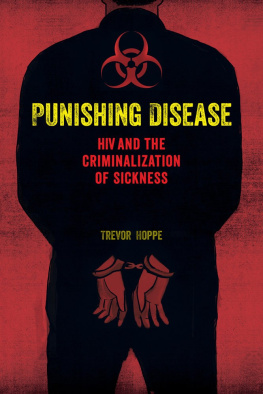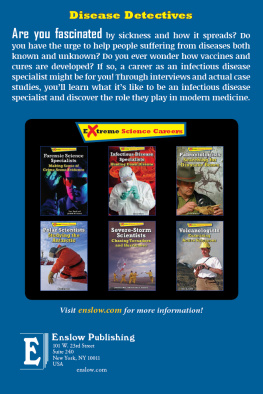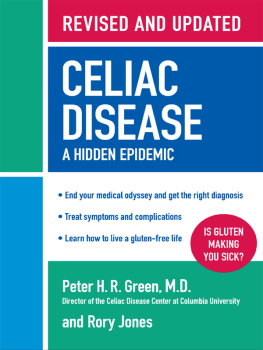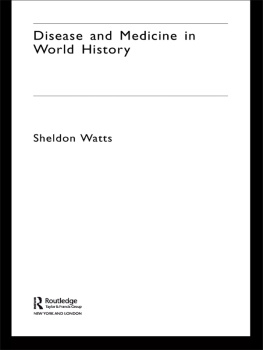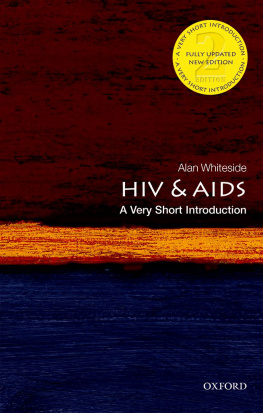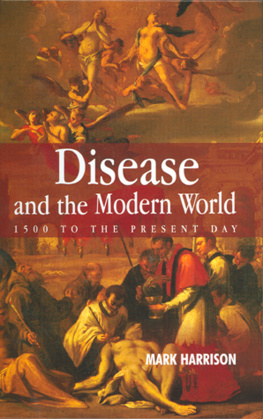A.1.
Acknowledgments
This book would not have been possible without the tremendous support of many generous institutions, supportive friends, critical reading groups, emotional happy hours, thoughtful advisers, and patient parents and family members. First of all, I feel so incredibly lucky and grateful to have benefited so tremendously from the mentorship of David Halperin. This book would not exist without his tireless assistance, thoughtful feedback, and unwavering support and stewardshipfrom our first meeting when I was an undergraduate student to our continued friendship today. Thank you, David, for teaching me How to Be Gay and for never letting me get away with second-rate scholarship (or, at the very least, for desperately doing your best to save me from myself).
This book (as well as my career) truly is the product of a kind of gay mentorship that should not go unspoken in these pages. When I moved to San Francisco in 2005, Eric Rofes brought me into the gay mens health movement and challenged me to rethink my nave and stale assumptions about the HIV epidemic. When I began to casually express frustration with an HIV prevention campaign billboard later that year, he plainly instructed me to write about it. That instruction led to my first commentary on the epidemic, an editorial in San Franciscos Bay Area Reporter, which planted the seeds of chapter 2 in this very book nearly a dozen years later. His untimely death in 2006 was devastating, and his loss continues to leave a void in my life and in the broader gay mens health community and movement. I would not be the scholar I am today were it not for Eric and for the many other gay men whose critical leadership shaped my understanding of the world. They include (but are not limited to) Barry Adam, Chris Bartlett, Edwin Bernard, David Caron, Hctor Carrillo, Alex Garner, David John Frank, Michael Hurley, Eric Mykhalovskiy, Mark Padilla, Kane Race, Sean Strub, Tony Valenzuela, and Fred Wherry. Perhaps at a greater distance, I also feel indebted for the leadership of gay and queer male scholars such as Juan Battle, John DEmilio, Steve Epstein, Amin Ghaziani, Adam Green, and Salvador Vidal-Ortiz.
Thats not to say that women and heterosexuals did not also help, of course! I am lucky to have had a co-advisor through graduate school, Renee Anspach, who has been my enthusiastic cheerleader ever since I set foot on campus at University of Michigan. Renees brilliant mind and tireless work have been instrumental in forming the basis of my scholarship and the basis of this book. Renee logged countless hours helping me to develop the historical and theoretical arguments found in these pages, and for that I am especially grateful.
In addition, Im grateful for the consistent support and enthusiasm from my editor at UC Press, Maura Roessner, as well as their entire editorial team (including my eagle-eyed copyeditor, Barbara Armentrout). Special thanks also go out to the anonymous reviewers who helped me to improve this manuscript, as well as to several readers who provided sage feedback at various stages of its development, including Judith Auerbach, Edwin Bernard, Sarah Burgard, Scott Burris, Adam Green, Sandra Levistsky, David Pedulla, and Kane Race. I am also grateful for the assistance of Twin Oaks indexing, who created the index for this book.
Perhaps no editor was more helpful than Brad Gorman, my soon-to-be husband, who transformed many a clunky sentence into far more accessible prose. I love you and I am so grateful to have you in my life.
There are many more to name, particularly my friends whose support during graduate school and beyond made writing this book a lot more tolerable, including Matt Aslesen, Aaron Boalick, Jay Borchert, Jackson Bowman, Matt Burgess, Redd Carter, Win Chesson, Scott De Orio (homo potluck!), Spencer Derrico, Matthieu Dupas, Karen Paxton Erbe, Maxime Foerster, Aston Gonzalez, Jessica Lowen, Rostom Mesli, Matt Leslie Santana, Jack Tocco, Bryan Victor, and Cookie Woolner.
Financially, this book was made possible by the support of many institutions that have been generous enough to support my research over the years. The funding I received from the University of Michigan was especially instrumental in supporting this projectparticularly funds provided by the Rackham Graduate School, the Department of Sociology, the Department of Womens Studies, the Ford School of Public Policy, the Institute for Research on Women and Gender, and the Center for the Education of Women. The University of California at Irvine Department of Criminology, Law, and Society; the Social Science Research Council; and the University at Albany, SUNY also provided critical support.
Invaluable research assistance was provided by Dean Bock, Jake Carias, and Christine Walsh at the University at Albany; Jazzmine Lorenzana, Nolan Phillips, and Tien Truong at UC-Irvine; and Matthew Lavigueur, Ruben Macias, Dana Nelson, and Brittany Rouchou at the HIV Law Project.
Last and certainly not least, I must thank my family. My parents, Robert and Susan, have been unwavering in their support of my academic development. They might not have always understood what I was up to or why, but they were always there to support me as I worked toward my dream. I am eternally grateful for their love and support. And last but not least, my siblingsDerek and Lindsaywho have managed to treat this middle child with a lot of love, tolerance, and patience.
INTRODUCTION
Punishment
AIDS in the Shadow of an American Institution
The states should pass laws and/or step up enforcement of their laws against homosexual activity. As much of a moral issue as it is, homosexual activity is also now a health threat of epidemic proportions, and it simply cannot be allowed.

